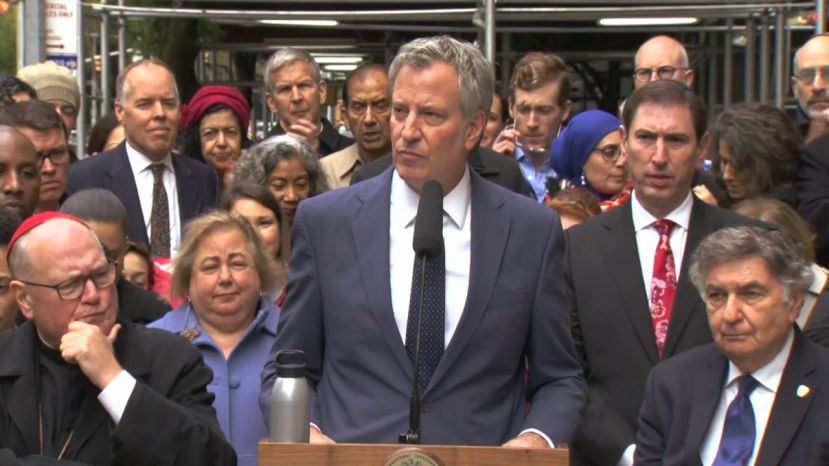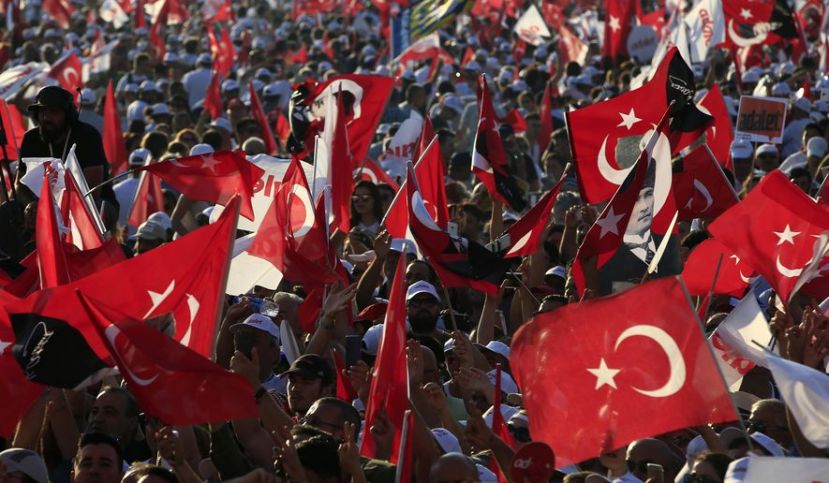Turkish President Recep Tayyip Erdogan has called on the international community to teach the United States "a good lesson" in an upcoming UN General Assembly vote on Washington's controversial decision to recognise Jerusalem as the capital of Israel. Erdogan’s comments come after the US Ambassador to the UN, Nikki Haley, warned on Wednesday that she would be "taking names" of the states voting against the decision and pass them to President Donald Trump, who has threatened to cut off aid to the countries in question. The vote on Thursday is non-binding, but it is expected to pass easily in the 193-member UN body.
"Mr Trump, you cannot buy Turkey's democratic will with your dollars. Our decision is clear," Erdogan said at a cultural awards ceremony in Ankara on Thursday.
"I call on the whole world: Don't you dare sell your democratic struggle and your will for petty dollars.
"I hope and expect the US won't get the result it expects from there (the UN) and the world will give a very good lesson to the US," Erdogan added.
READ MORE
UN Security Council to weigh resolution on Jerusalem
Trump, on December 6, announced the US decision to recognise Jerusalem as Israel's capital, deviating from decades-old policy and the international consensus that the city's status should be resolved through peace talks.
On Tuesday, the US vetoed an Egyptian-sponsored UN Security Council resolution that asked countries not to establish diplomatic missions in Jerusalem.
The US, one of the five permanent members of the UN body with veto power, was outnumbered 14 to 1 when it vetoed that resolution.
Ankara tough on US move
Turkey has been highly vocal in criticising the US administration over its Jerusalem decision, leading calls at last week's summit of the Organisation of Islamic Conference in Istanbul last week to officially recognise East Jerusalem as the capital of Palestine.
Taha Ozhan, a ruling party MP and chair of the Turkish parliament's foreign affairs commission, told Al Jazeera earlier in the week that Ankara's efforts against Trump's move put pressure on regional countries to speak up.
"Turkey has triggered this, and regional actors are reacting," he said.
WATCH: Turkey plays major role against US Jerusalem move (2:28)
"A possible vote in the General Assembly will remind us of the scenes we saw a few years ago in the vote there for Palestine to be a non-member observer state, in which only the US, Israel and few more countries voted against the move, dominated by the rest of the members."
In the 2012 vote at the General Assembly, Palestine was given non-member observer status with 138 votes cast for the resolution and nine votes against it.
Thousands of Turkish protesters marched in various parts of the country through the weekend, carrying anti-US and anti-Israel signs and shouting slogans against the two countries.
SOURCE: Al Jazeera News









![Turkish troops and Free Syrian Army fighters hold flags on Mount Barsaya, northeast of Afrin, Syria on January 28 [Reuters/Khalil Ashawi]](/media/k2/items/cache/9b299f7dbd2b96202ef61cdbe6bdce1f_S.jpg)





![The Turkish president has been highly vocal in criticising the US administration over its Jerusalem decision [Anadolu Ajansi]](/media/k2/items/cache/c4ef1c5717f8e7f9d40d8ff0829d2d3a_XS.jpg)






